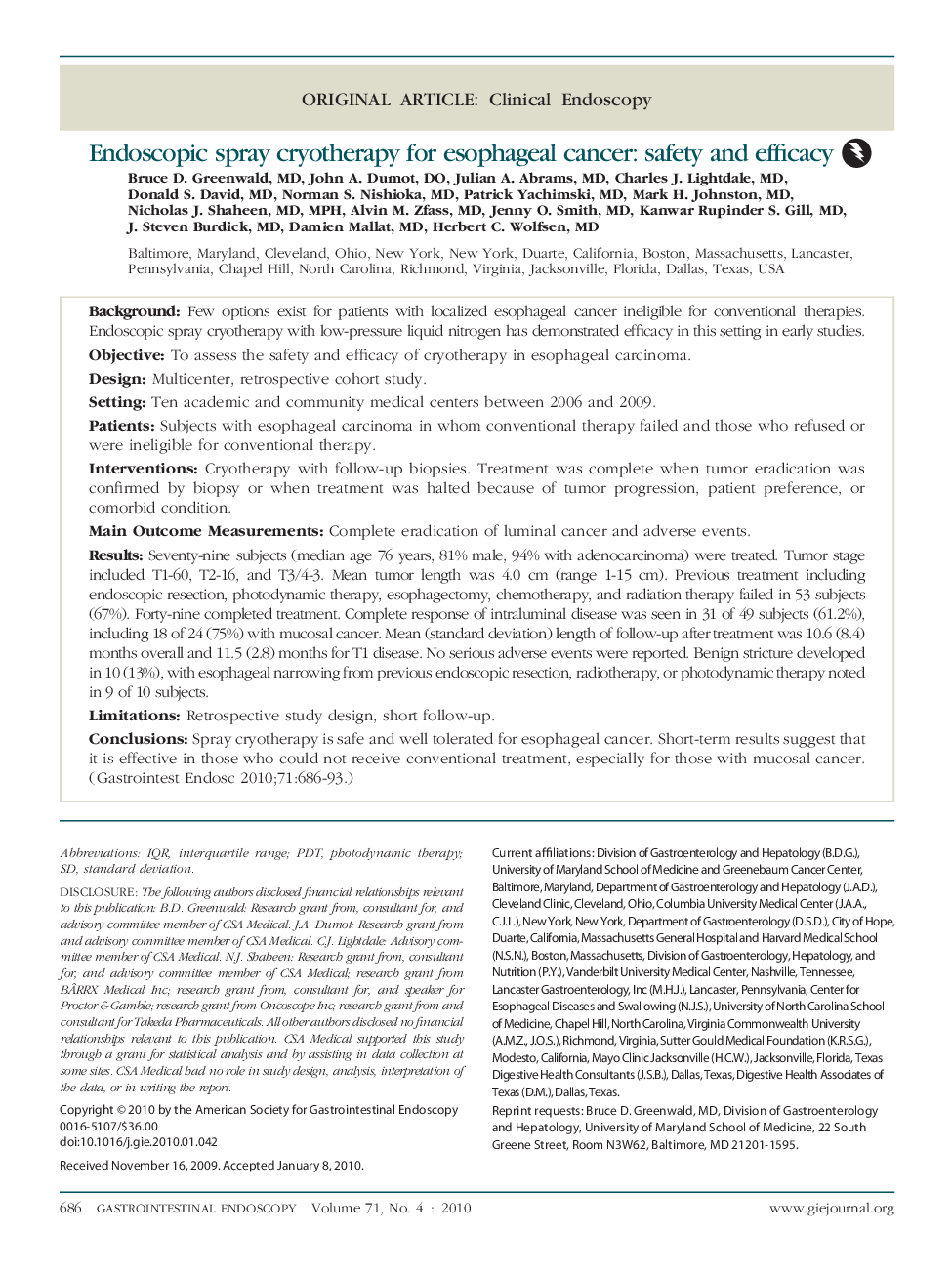| Article ID | Journal | Published Year | Pages | File Type |
|---|---|---|---|---|
| 3305631 | Gastrointestinal Endoscopy | 2010 | 8 Pages |
BackgroundFew options exist for patients with localized esophageal cancer ineligible for conventional therapies. Endoscopic spray cryotherapy with low-pressure liquid nitrogen has demonstrated efficacy in this setting in early studies.ObjectiveTo assess the safety and efficacy of cryotherapy in esophageal carcinoma.DesignMulticenter, retrospective cohort study.SettingTen academic and community medical centers between 2006 and 2009.PatientsSubjects with esophageal carcinoma in whom conventional therapy failed and those who refused or were ineligible for conventional therapy.InterventionsCryotherapy with follow-up biopsies. Treatment was complete when tumor eradication was confirmed by biopsy or when treatment was halted because of tumor progression, patient preference, or comorbid condition.Main Outcome MeasurementsComplete eradication of luminal cancer and adverse events.ResultsSeventy-nine subjects (median age 76 years, 81% male, 94% with adenocarcinoma) were treated. Tumor stage included T1-60, T2-16, and T3/4-3. Mean tumor length was 4.0 cm (range 1-15 cm). Previous treatment including endoscopic resection, photodynamic therapy, esophagectomy, chemotherapy, and radiation therapy failed in 53 subjects (67%). Forty-nine completed treatment. Complete response of intraluminal disease was seen in 31 of 49 subjects (61.2%), including 18 of 24 (75%) with mucosal cancer. Mean (standard deviation) length of follow-up after treatment was 10.6 (8.4) months overall and 11.5 (2.8) months for T1 disease. No serious adverse events were reported. Benign stricture developed in 10 (13%), with esophageal narrowing from previous endoscopic resection, radiotherapy, or photodynamic therapy noted in 9 of 10 subjects.LimitationsRetrospective study design, short follow-up.ConclusionsSpray cryotherapy is safe and well tolerated for esophageal cancer. Short-term results suggest that it is effective in those who could not receive conventional treatment, especially for those with mucosal cancer.
